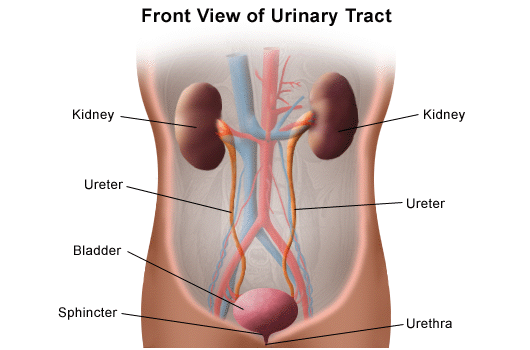
Urinary Incontinence
Millions of women experience involuntary loss of urine called urinary incontinence(UI). Some women may lose a few drops of urine while running or coughing. Others may feel a strong, sudden urge to urinate just before losing a large amount of urine. Many women experience both symptoms. UI can be slightly bothersome or totally debilitating. For some women, the risk of public embarrassment keeps them from enjoying many activities with their family and friends. Urine loss can also occur during sexual activity and cause tremendous emotional distress.
Women experience UI twice as often as men. Pregnancy and childbirth, menopause, and the structure of the female urinary tract account for this difference. But both women and men can become incontinent from neurologic injury, birth defects, stroke, multiple sclerosis, and physical problems associated with aging.
Older women experience UI more often than younger women. But incontinence is not inevitable with age. UI is a medical problem. Your doctor or nurse can help you find a solution. No single treatment works for everyone, but many women can find improvement without surgery.
Incontinence occurs because of problems with muscles and nerves that help to hold or release urine. The body stores urine-water and wastes removed by the kidneys-in the bladder, a balloon-like organ. The bladder connects to the urethra, the tube through which urine leaves the body.
